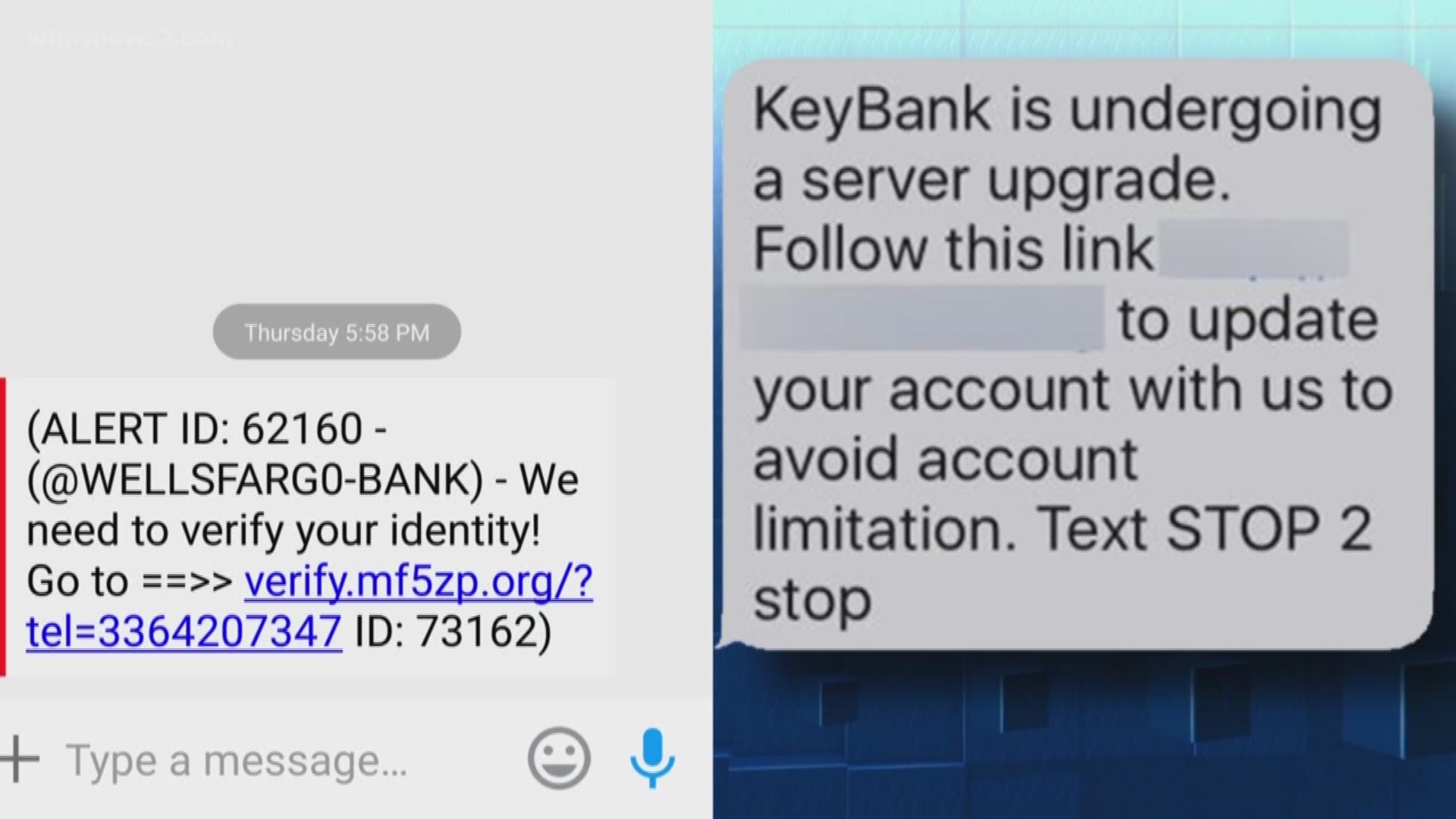The texts appear to be coming from Key Bank and American Express, and will ask you to click on a link to provide information to keep your account up to date.
“At first glance you could very well be fooled into thinking this was your bank contacting you,” said Sue McConnell of the Better Business Bureau.
Simply clicking on the link can cause problems for your phone, and although it’s rare, your phone can be infected with a virus or malware.
The critical issue, however, is the information the scammers are trying to steal by getting you to click on the link they send in the text message, “A lot of fraud surfaces on your phone these days,” McConnell says.
Our news gathering partners at WOIO contacted the Ohio Attorney General’s Office and they warned to never click on a link sent to you on your cellphone that you did not request.
It’s also important not to respond to these text messages in any manner, including the prompts that ask you if you want to stop receiving text messages from that number.
Scammers will use any number that responds in a future scam.
WOIO also contacted Key Bank and they said the text messages were an attempt to steal account information from customers and that unfortunately all banks seem to be victims of scammers using their names.
McConnell, from the Better Business Bureau, said scammers have realized how distracted we are in our daily lives and that some of us may hurriedly respond to a text, “These scammers are hoping that this will catch you off guard and that you'll click through and give them what they’re asking for.”

